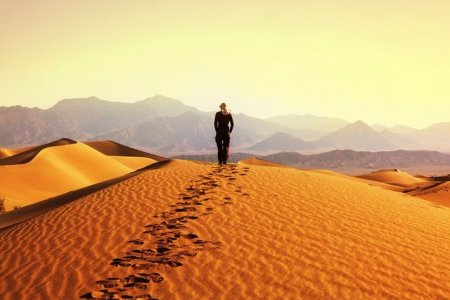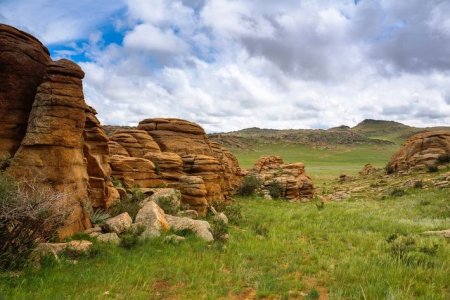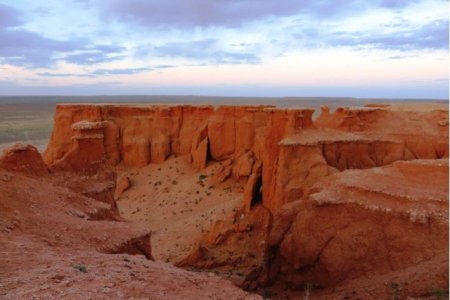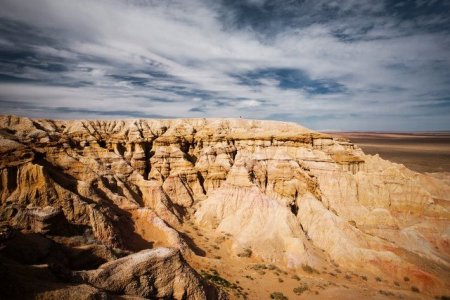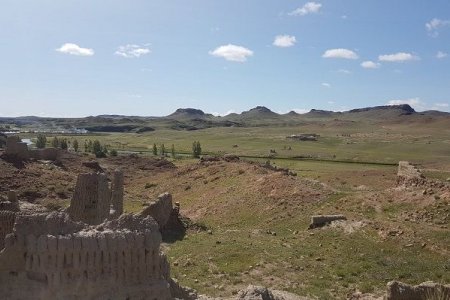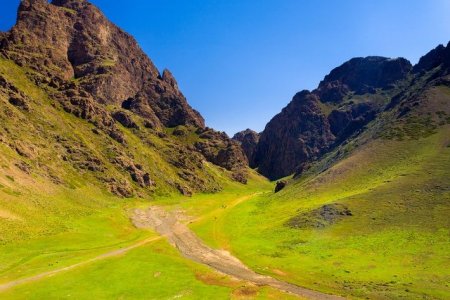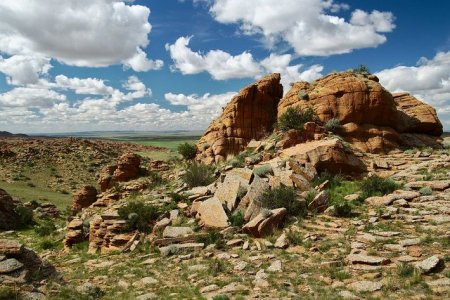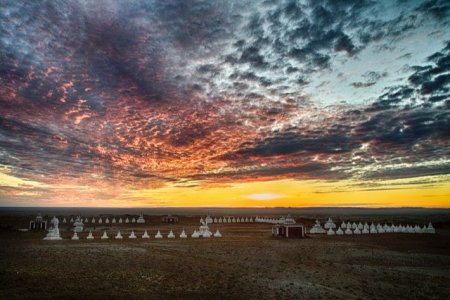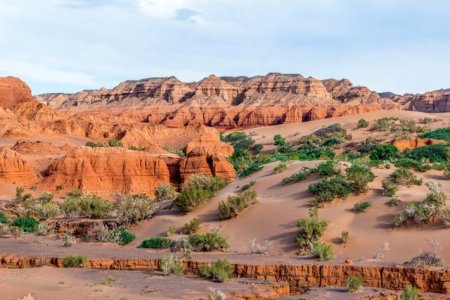One of the beautiful sand dune in the Gobi is the Khongor Sand Dunes that extend more than 180 km (112 miles) with majestic heights of 15-30 m along the northern side of Sevrei and Zuulun mountain ranges.
Read moreIt is located in Delgertsogt sum, Dundgovi province and surrounded by plain. Baga Gazriin Stone is 15 km long and 10 km wide granite stone-mountain elevated at 1768m above sea level. 30km away to the south-east of Adaatsag soum center.
Read morePrecipitous banks, hillocks, and hardened clay soil, mostly unchanged since Cretaceous period, blaze brilliant shades of red and orange at sunset- hence the name “Flaming cliffs” as dubbed by American paleontologist Roy Chapman Andrews on his expeditions to the region in the 1920s.
Read moreTsagaan suvarga, 90 degree of straight, consists of many colors of clay deposits.
Read moreThis small mountainous area along the river, The Ongi River, in the western sum of Saikhan Ovoo, makes a good resting place to break a trip between the south Gobi and Arvaikheer.
Read moreYol valley originally established to conserve birdlife in the region. But it’s now more famous for its dramatic and very unusual scenery- its valley in the middle of the Gobi Desert with meters thick ice almost all year around.
Read moreThe 2 mountains with granite stone massifs and taluses located in Mongolian granite stone zone, Dundgove province are Ikh and Baga Gazriin Stones. Ikh Gazriin Stone covers more than 20km long area consisting of north and south parts.
Read moreKhamriin khiid monastery was established in the 1820's by the order of Mongolian educator and literary figure Danzanravjaa. The Monastery was the biggest center of the Buddhist "red sect".
Read moreGoing through the Khermen Tsav seem like traveling through ancient city ruins with many religious stupas and temples.
Read more

